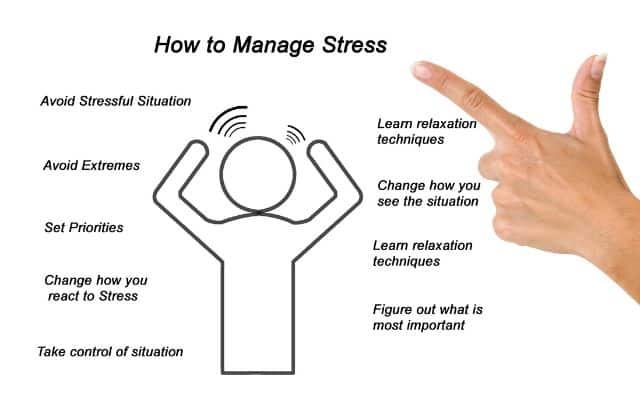Table of Contents
What means self-control?
The power to control your emotions and appear calm even when you are angry, afraid, excited, etc. In short, the ability to control our feelings, emotions, and reactions.
So much of achieving goals and success is built on good habits, and good habits are often built on self-control, discipline, and the elimination of bad habits. But building good habits and improving self-control is much easier said than done, and it takes a lot of mental and physical discipline to better yourself. It is up to us to take uncomfortable actions to make your future comfortable and gain more self-control. You can improve your own self-control with right efforts and practice. Renowned Business Transformation Expert Hirav Shah mentions 5 ways.
4 Types of self-control
- Physical motion.
- Emotion.
- Concentration.
- Impulses.
Improve self-control and build good habits
1. Temptation to be removed

We are not wired to consistently resist temptation, Hirav Shah says that, the way most people resist temptation is to remove the temptation.
According to Hirav Shah, “training self-control through practicing repeatedly never results in generalized improvements in self-control.” So stop beating yourself up for not having much self-control, we’re not wired for it. So if people are not wired to have self-control, how do disciplined men or women exist?
They remove temptation through creating effortless self-control. Instead of the struggle to resist temptation, remove the temptation.
Set yourself up to succeed by managing yourself and your atmosphere by removing temptations. It helps to decide automatically, so now you can focus on decisions and priorities that matter more.
2. Progress to be measured

What gets measured gets managed. According to Hirav Shah, keeping track of your progress keeps you focused on your goals. Monitoring helps us become maestros on our own behavior, and it makes habits less difficult to control and change.
3. Learn how stress can be managed

What helps your heart rate slow down is, stopping and taking a few deep breaths, that helps you relax at the moment. Exercise regularly, eat clean and make sure you’re getting enough sleep. Your focus, cognitive function and your health gets improved.
When your blood sugar is low, and you are sleep-deprived, you make poor decisions.
Exercise aids in sleeping better and helps you have discipline with your diet. Managing stress in healthy ways ensures you have the energy to keep grinding when work and life can feel overwhelming.
4. Prioritize Things

Make a to-do list for every day, week, and month. It keeps you in control, because feeling overwhelmed and like things, are out of your control only leads to stress, disorganization and wasted time.
5. Forgive

Forgive others and move on. Forgive yourself and move on. That’s the catch. Worrying achieves nothing, it is wasted energy. Simply forgive.
Self-control, often referred to as self-discipline, willpower, or grit, brings a multitude of benefits that touch various aspects of life. Here are some key advantages:
Benefits of Self Control

Personal Growth:

- Improved decision-making: By resisting impulsive choices, you can make well-considered decisions aligned with your long-term goals and values.
- Goal achievement: Self-control allows you to stay focused and disciplined, pushing through challenges and distractions to achieve your desired outcomes.
- Emotional regulation: Managing your emotions effectively prevents them from controlling your actions, leading to better emotional well-being and healthier relationships.
- Increased self-confidence: When you see yourself consistently demonstrating self-control, it builds your trust in your own abilities and strengthens your self-confidence.
Health and Well-being:

- Healthier habits: You can make choices that support your physical and mental health, like resisting unhealthy temptations and sticking to exercise routines.
- Reduced stress: By managing your emotions and reactions effectively, you experience less stress and its associated negative impacts on your health.
- improved sleep: Self-control helps you avoid behaviors that disrupt your sleep, such as late-night screen time or emotional turmoil, leading to better sleep quality.
Relationships and Success:

- Stronger relationships: Self-control allows you to be more patient, understanding, and supportive in your interactions with others, fostering stronger bonds.
- Academic and professional success: By staying focused and disciplined, you are more likely to perform well in school, work, and achieve your career goals.
- Financial stability: Resisting impulsive spending and making informed financial decisions contributes to better financial management and security.
Remember:

- Self-control is a skill that can be developed with practice and effort.
- There will be setbacks, but view them as learning opportunities and keep working towards your goals.
- Celebrate your successes along the way, as positive reinforcement strengthens your self-control muscle.
If you’re interested in learning more about specific strategies for improving your self-control, feel free to ask!
Conclusion
Post the Will Smith-Chris Rock notorious episode, the world has been discussing self control and the art of it and how to ace it. Hence, Business Enhancement Leader Hirav Shah has shared 5 invaluable ways to improve self-control and these tips apply to one and all. You’ll soon learn the benefits of self-control.
This can deepen your decision-making capacity. Self-control can help you curb your high temperaments/anger rate. Self-control plays a major role in your emotional feeling. And yes, it can help stabilize and solve trust issues in a relationship or marriage.
Frequently Asked Questions
Is there any notorious instance of lack of self-control?
Will Smith’s lack of self-control has set a shameful example to the entire world.
Who resigned from the Academy due to lack of self-control?
Will Smith resigned from the Academy after ‘shocking’ Oscars slap.
What are the 3 types of self-discipline?
Three types of Self-Discipline are active discipline, reactive discipline, and proactive discipline.











